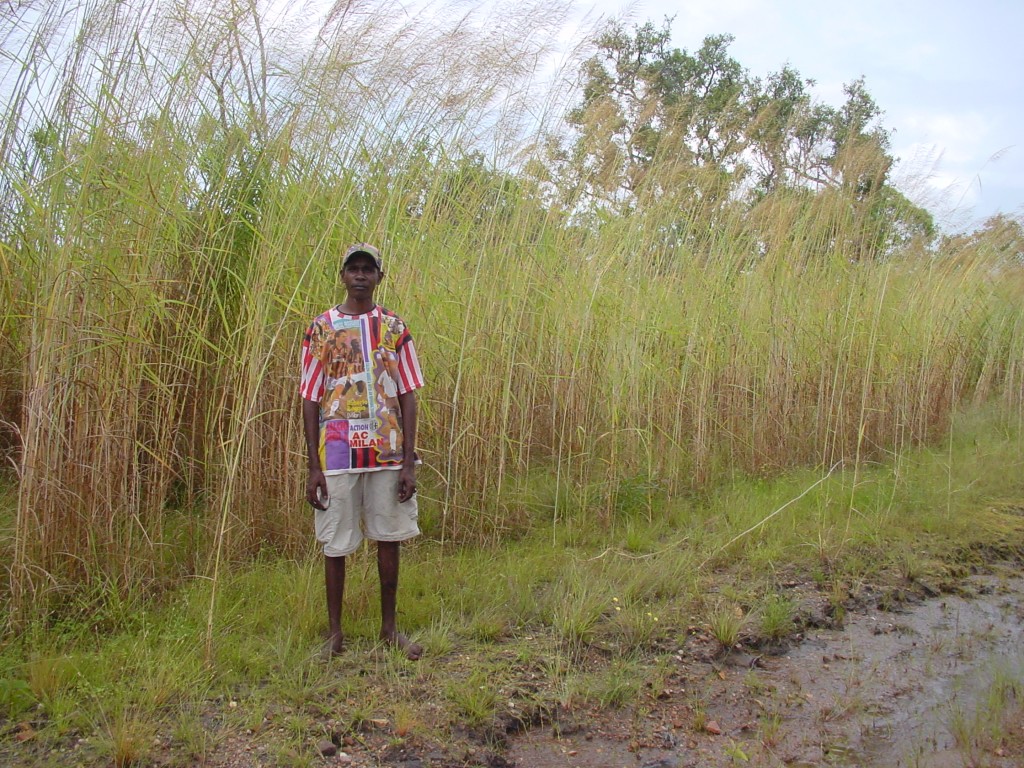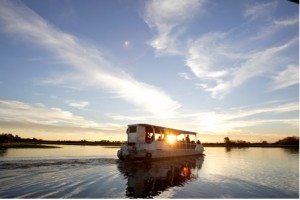Konda Kabard
Here it stands (literally 'here it-knee/node')
(W) = Kunwinjku (Gdj) = Gundjeihmi
For those who have been learning their body part vocabulary and playing the Kunwinjku body part game you will have learnt the word for knee kunbard (W) gunbard (Gdj). The word also refers to nodes on the stem of plants such as bamboo mankole (W) an.gole (Gdj) and sorghum spear grass manbedje (W) anbedje (Gdj). In this sense (plants), the word will take a vegetal noun class prefix man-bard (W) an-bard (Gdj).
You might also come across another kind of construction where the noun stem -bard has a pronoun prefix ka- (W) ga- (Gdj) on it: kabard (W) gabard (Gdj). This means 'it [the plant] is standing [by virtue of its 'knees/nodes']. An illustration of this 'predicate noun' usage is in a couple of songs of the Wurrurrumi song set of the kunborrk musical genre sung by Kevin Djimarr. In these songs Djimarr sings about wayarra 'spirit beings' from whom he receives his music. Djimarr talks about seeing wayarra holding the stems of manbedje 'Sorghum spear grass' in the wet season and they point out each of the nodes towards the seed head at the top. They say "here is a node, here is a node, here further up it is coming into seed'.
 Konda kabard manbedje, kudjewk. Here the spear grass is standing, in the wet season.
Konda kabard manbedje, kudjewk. Here the spear grass is standing, in the wet season.
You can hear Kevin Djimarr singing about wayarra spirits and their obsession with spear grass nodes here:
[soundcloud url="http://api.soundcloud.com/tracks/59213537" params="auto_play=false&show_artwork=true&color=cc6409" width="100%" height="166" iframe="true" /]
The song text is:
Konda kabard konda kabard here it stands here it stands [the spear grass]
konda kabard konda kabard here it stands here it stands [the spear grass]
kumekke kumekke kabard there and there it stands
kumekke kumekke kabard there and there it stands
konda kabard konda kabard here it stands here it stands
In the next audio file, you can hear Djimarr chanting the final coda sequence when he performs the last song of the evening at Mamurrng ceremonies. Here he imitates the wayarra spirit beings chanting the spear grass nodes or 'knees'. The text is below the audio.
[soundcloud url="http://api.soundcloud.com/tracks/59213924" params="auto_play=false&show_artwork=true&color=cc6409" width="100%" height="166" iframe="true" /]
konda kabard konda kabard konda kabard here it stands here it stands [the spear grass]
konda kabard konda kabard konda kaba... here it stands here it stands [the spear grass]
konda yungki kanganjboke here further up it is coming into seed
Bonj
That is all.
